15 Musicians Who Have Admitted They Regret Their Past Problematic Songs
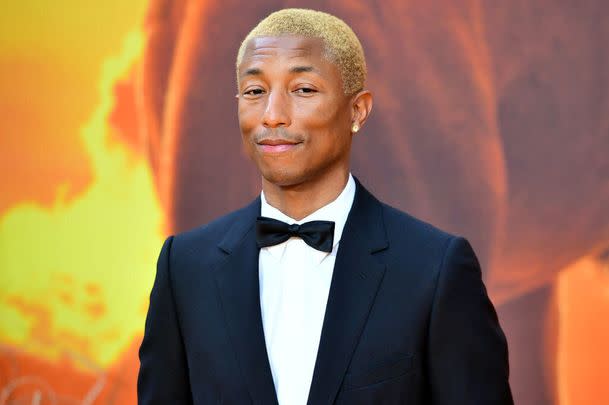
Samir Hussein / WireImage / Via Getty Images
Pharrell says he's "embarrassed" by "Blurred Lines."
The song: In 2013, Pharrell was featured on Robin Thicke's "Blurred Lines" — a controversial song that many say perpetuates rape culture with lyrics like "I know you want it" and "I hate these blurred lines."
What he said about it later: "[At first] it's like 'What's rapey about that?' And then I realized that there are men who use that same language when taking advantage of a woman, and it doesn't matter that that's not my behavior. Or the way I think about things. It just matters how it affects women... I realized that we live in a chauvinist culture in our country. I hadn't realized that. Didn't realize that some of my songs catered to that. So that blew my mind," he told GQ in 2019.
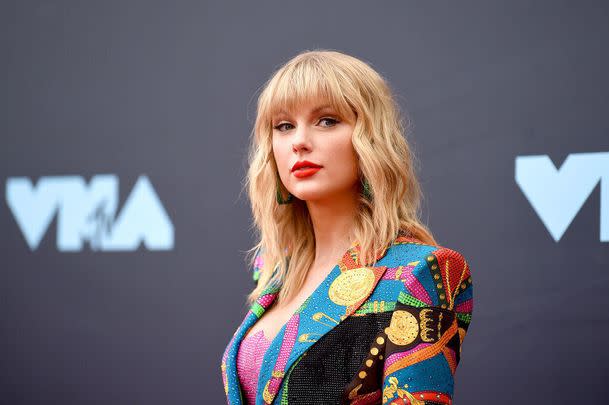
Jamie Mccarthy / Getty Images
Taylor Swift changed a homophobic lyric in "Picture to Burn."
The song: Her 2008 hit "Picture to Burn" contained the lyrics: "So go and tell all your friends that I'm obsessive and crazy / That's fine, I'll tell mine you're gay."
What she said about it later: "Now, the way that I would say that and the way that I would feel that kind of pain is a lot different," she told MTV in 2011. The lyrics were subsequently changed.
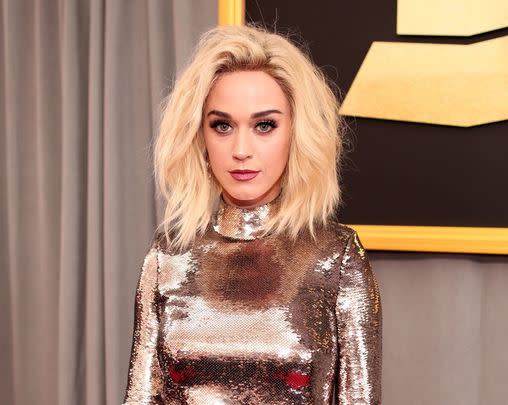
Christopher Polk / Getty Images
Katy Perry says "I Kissed a Girl" plays up harmful stereotypes about bisexuality.
The song: Perry skyrocketed to fame with the release of "I Kissed a Girl" in 2008, a song about a woman kissing a girl, and liking it.
What she said about it later: "We've really changed, conversationally, in the past 10 years. We've come a long way. Bisexuality wasn't as talked about back then, or any type of fluidity. If I had to write that song again, I probably would make an edit on it. Lyrically, it has a couple of stereotypes in it. Your mind changes so much in 10 years, and you grow so much. What's true for you can evolve," she told Glamour in 2018.
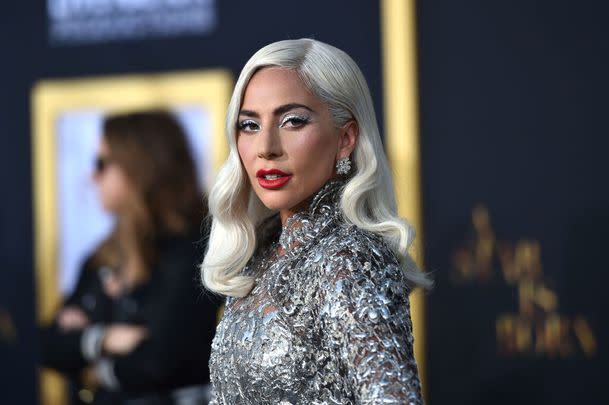
Neilson Barnard / Getty Images
Lady Gaga apologized for "Do What U Want" in light of the sexual assault charges against R. Kelly.
The song: Lady Gaga collaborated on a song called "Do What U Want (With My Body)" with R. Kelly, who has been charged with sexual assault and other sex crimes.
What she said about it later: "As a victim of sexual assault myself, I made both the song and video at a dark time in my life, my intention was to create something extremely defiant and provocative because I was angry and still hadn't processed the trauma that had occurred in my own life. The song is called 'Do What U Want (With My Body),' I think it's clear how explicitly twisted my thinking was at the time... I’m sorry, both for my poor judgment when I was young and for not speaking out sooner," she wrote in a statement in 2019.

Gregg Deguire / Getty Images
Lorde says she's reconsidered lyrics in "Royals" that have been called racist by some.
The song: Lorde became an international sensation with her 2013 song "Royals," but some critics wrote that the lyrics appropriated Black culture.
What she said about it later: "I mean, it's one thing for kids who fight in the comments section of YouTube and who use 'gay' as an insult to take offense at what you're doing; but when it's highly intelligent writers, all of whom you respect, you start to question what you're doing and if you have done something wrong... I'm glad that people are having discussions about it and informing me about it," she told Rookiemag in 2014.
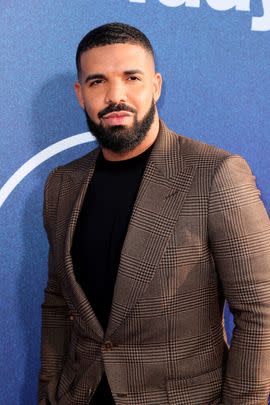
Leon Bennett / WireImage, / Via Getty Images
Drake apologized for including a J. Cole verse on his song "Jodeci Freestyle" that was hurtful to autistic people.
The song: In 2013, J. Cole was featured on a Drake song where he rapped a deeply offensive lyric about autistic people, calling them "retarded."
What Drake said about it later: "I share responsibility and offer my sincerest apologies for the pain this has caused. Individuals with autism have brilliant and creative minds, and their gifts should not be disparaged or discounted. This was a learning lesson for both of us, and I’m grateful for the opportunity to try to right this wrong. J. Cole and I believe that it is the right, responsible, and respectful decision to remove the lyric from the song," he wrote in a statement. J. Cole issued an apology, too.
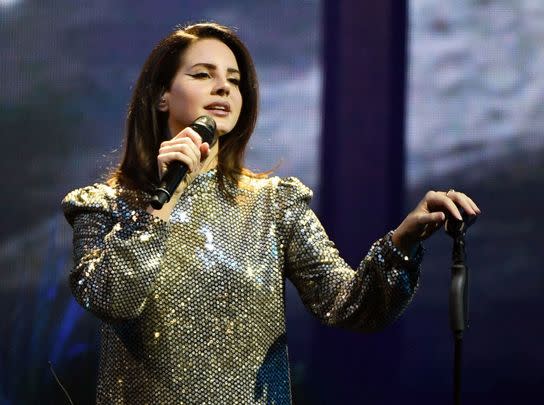
Ethan Miller / Getty Images
Lana Del Rey says she no longer sings a line from "Ultraviolence" about physical abuse.
The song: In her 2014 song "Ultraviolence," Del Rey sings: "He hit me and it felt like a kiss." It's a reference to a song by the '60s group The Crystals. Some worried that the lyric glorified intimate partner violence.
What she said about it later: "I don’t like it. I don’t. I don’t sing it. I sing 'Ultraviolence' but I don’t sing that line anymore. Having someone be aggressive in a relationship was the only relationship I knew," she told Pitchfork in 2017.
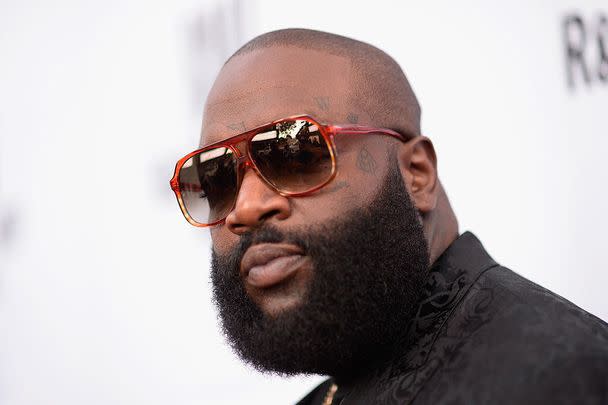
Frazer Harrison / Getty Images
Rick Ross apologized for his verse on Rocko's "U.O.E.N.O." which depicted a woman being raped.
The song: In 2013's "U.O.E.N.O." (a play on the phrase "you don't even know") Ross raps about drugging and raping a woman: "Put molly all in the champagne / She ain't even know it / I took her home and I enjoyed that / She ain't even know it."
What he said about it later: "To every woman that has felt the sting of abuse, I apologize. I recognize that as an artist I have a voice and with that, the power of influence. To the young men who listen to my music, please know that using a substance to rob a woman of her right to make a choice is not only a crime, it’s wrong and I do not encourage it... I can only hope that this sparks a healthy dialogue and that I can contribute to it," he wrote in a statement soon after the song's release.
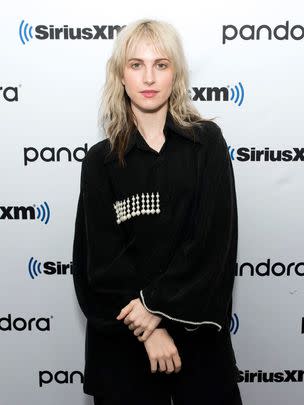
Bonnie Biess / Getty Images
Paramore's Hayley Williams has stopped singing a slut-shaming lyric in "Misery Business."
The song: Paramore's 2007 song contained the lyric: "Once a whore, you’re nothing more / I’m sorry that’ll never change." The lyric became the subject of controversy nearly a decade after its release in 2015.
What she said about it later: "I’m a 26-year-old person. And yes, a proud feminist. Just maybe not a perfect one. The thing that annoyed me was that I had already done so much soul-searching about it, years before anyone else had decided there was an issue... I was a 17-year-old kid when I wrote the lyrics in question and if I can somehow exemplify what it means to grow up, get information, and become any shade of ‘woke’, then that’s a-okay with me," she told Track 7.
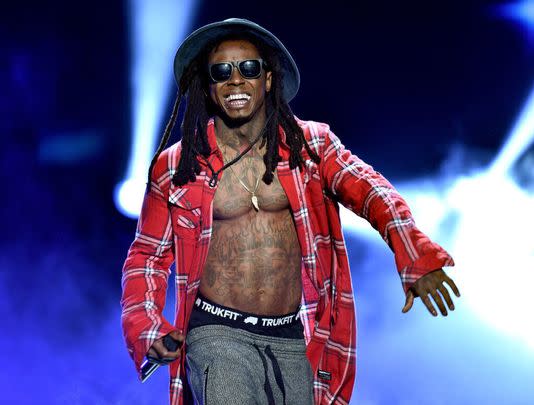
Kevin Winter / Getty Images
Lil Wayne apologized for a lyric on "Karate Chop Remix" where he made light of the brutal murder of Emmett Till.
The song: Lil Wayne became the subject of controversy in 2013 when he rapped that he would "beat that pussy like Emmett Till," referring to the young Black boy who was beaten to death by white men in 1955.
What he said about it later: "It has come to my attention that lyrics from my contribution to a fellow artist’s song has deeply offended your family," he wrote in an open letter to the Tills. "As a father myself, I cannot imagine the pain that your family has had to endure...I will not be performing the lyrics that contain that reference live and have removed them from my catalogue."
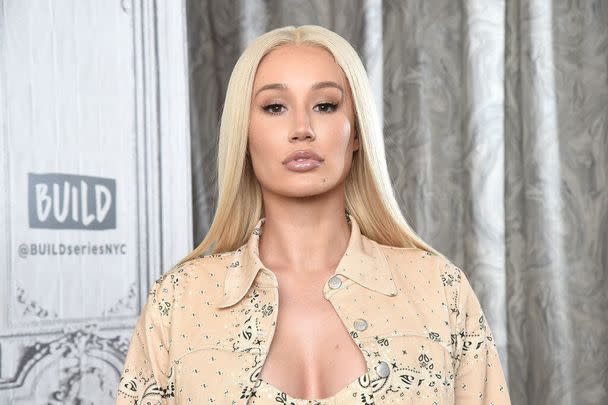
Gary Gershoff / Getty Images
Iggy Azalea apologized for a racist lyric in "D.R.U.G.S."
The song: Azalea's 2011 song "D.R.U.G.S." includes a lyric where she calls herself a "runaway slave master," an apparent response to Kendrick Lamar rapping that he was a "runaway slave."
What she said about it later: "Sometimes we get so caught up in our art and creating or trying to push boundaries, we don’t stop to think how others may be hurt by it. In this situation, I am guilty of doing that and I regret not thinking things through more," she wrote in a note to fans.
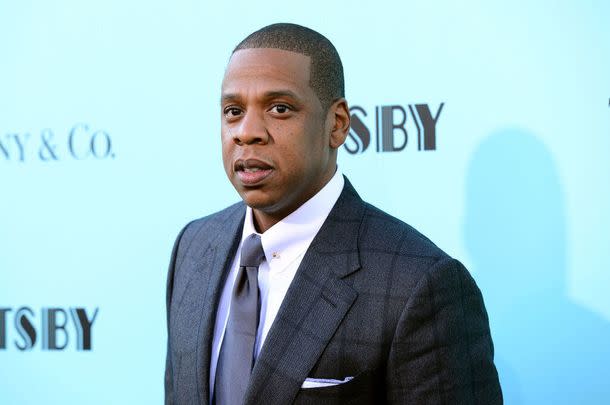
Stephen Lovekin / Getty Images
Jay-Z regrets his misogynistic lyrics in "Big Pimpin'", saying they made him sound like an "animal."
The song: Jay-Z's 2000 hit "Big Pimpin'" includes several lyrics that objectify women, like: "You know I thug 'em, fuck 'em, love 'em, leave 'em / 'Cause I don't fuckin' need 'em / Take 'em out the hood, keep 'em lookin' good / But I don't fuckin' feed 'em."
What he said about it later: “Some [lyrics] become really profound when you see them in writing. Not 'Big Pimpin'.' That’s the exception. It was like, I can’t believe I said that. And kept saying it. What kind of animal would say this sort of thing? Reading it is really harsh," he told the Wall Street Journal in 2010.
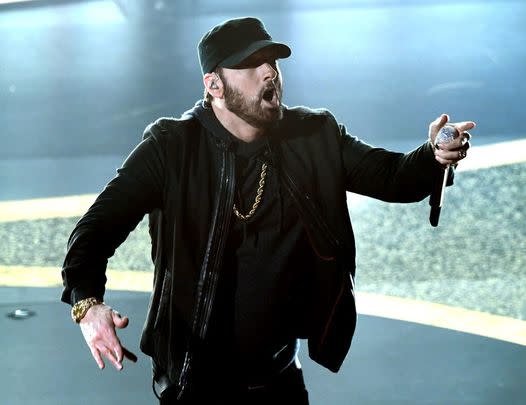
Kevin Winter / Getty Images
Eminem says he went "too far" when he used an antigay slur in his song "Fall."
The song: In 2018, Eminem released a song where he dissed Tyler the Creator using an antigay slur: "Tyler create nothin’, I see why you called yourself a faggot, bitch."
What he said about it later: "I think the word that I called him on that song was one of the things where I felt like this might be too far. Because in my quest to hurt him, I realize that I was hurting a lot of other people by saying it… It was one of the things that I kept going back to and going ‘I don’t feel right with this,'" he admitted in an interview with Sway.
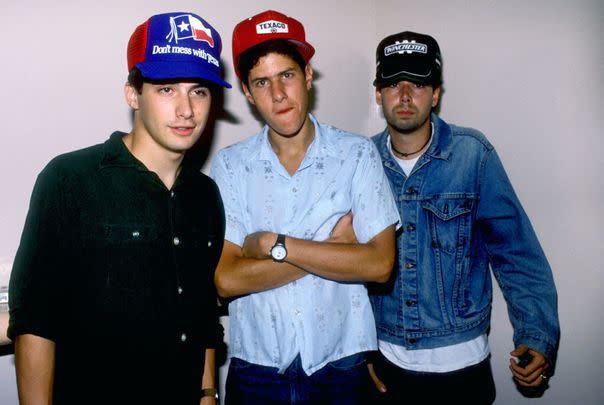
L. Cohen / WireImage / Via Getty Images
The Beastie Boys have apologized for their early body of work, which was offensive on several fronts.
The work: The Beastie Boys' early work was rife with sexism, with grossly objectifying lyrics and shows that featured women locked in cages. They also intended to title their first album "Don't Be A Faggot," before changing it to "License to Ill."
What they said about it later: ”There are no excuses. But time has healed our stupidity… We have learned and sincerely changed since the '80s… We hope that you’ll accept this long overdue apology," they wrote in a letter to fans in 1999.
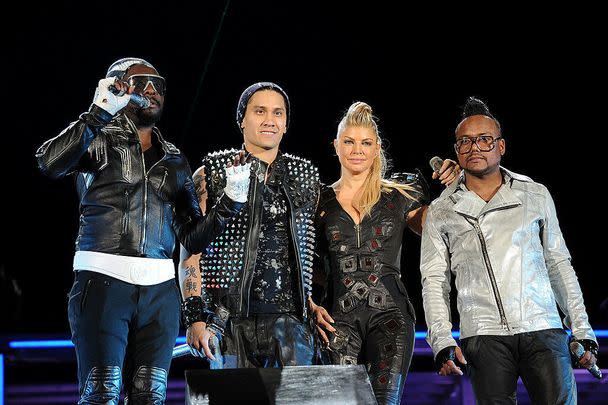
Dimitrios Kambouris / Getty Images
And finally, it's safe to assume the Black Eyed Peas regret their infamous song, "Let's Get Retarded."
The song: The Black Eyed Peas caused a stir in 2003 when they released a song called "Let's Get Retarded." Will.i.am opens the song by stating "In this context, there's no disrespect." Suffice to say, many listeners did not agree with him.
What they said about it later: The band never apologized for the song. But they did quietly re-release it a year later with a new name and lyrics: "Let's Get It Started."

